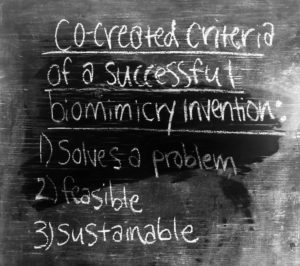Educators implement effective planning, instruction, assessment and reporting practices to create respectful, inclusive environments for student learning and development.
A goal of mine in this practicum was to develop my skills in assessment. In my previous practicum, assessment was usually an afterthought. After my Assessment and Motivation course this semester, I now believe that engaging learners in their own assessment can empower them to take responsibility for their learning journey. I experimented with facilitating the co-creation of criteria at the beginning of a lesson with students and writing it on the board to refer to throughout the lesson and conclusion. I felt that the act of co-creating the criteria and expectations as a class gave learners autonomy over, investment in, and responsibility for their learning process and product. I noticed how the co-created criteria on the board helped to create space for self-reflection, rich discussion, and peer feedback during the conclusion of the lesson. In my next practicum, I will continue to experiment with and improve this strategy in hopes of continuing to empower learners to become an active member in their own assessment.

Another way I worked on my skills in assessment was by providing meaningful feedback for learners through their e-portfolios. By spending time with students’ e-portfolios, I was able to get a better idea of their growth through their learning continuum, and then provide meaningful, encouraging feedback, while challenging them for future growth. Spending time to provide feedback for learners on this platform also helped to connect to families of these learners, during a time where it is more difficult to connect in person. I am currently exploring ways in which I can effectively integrate the building of a meaningful learning portfolio in my upcoming 491 practicum.
